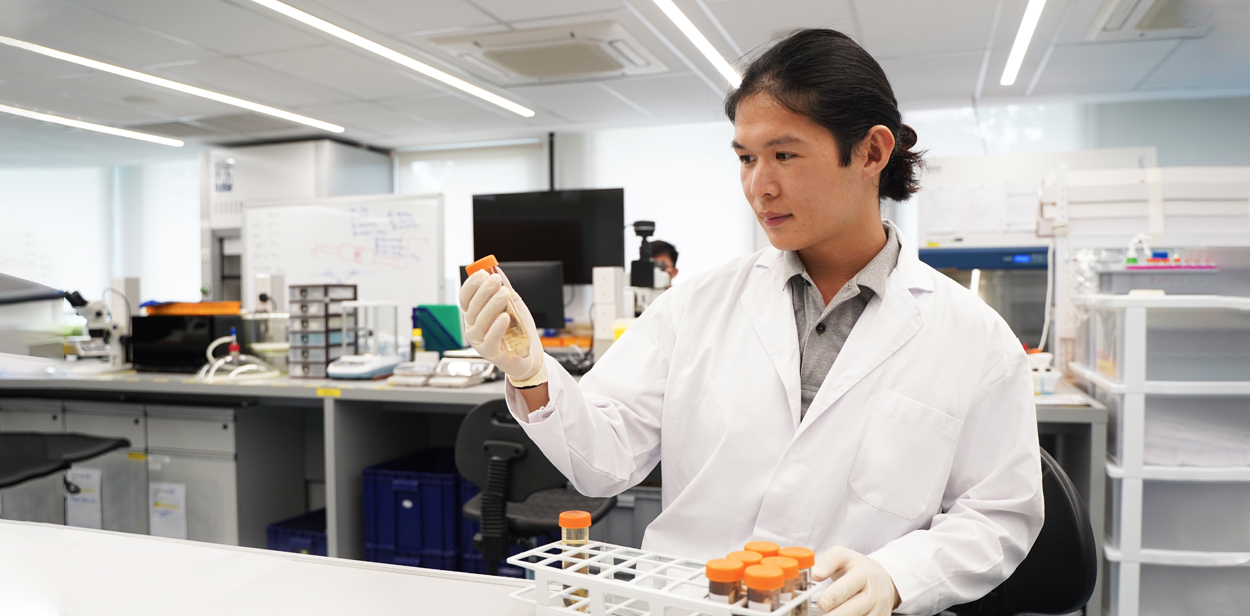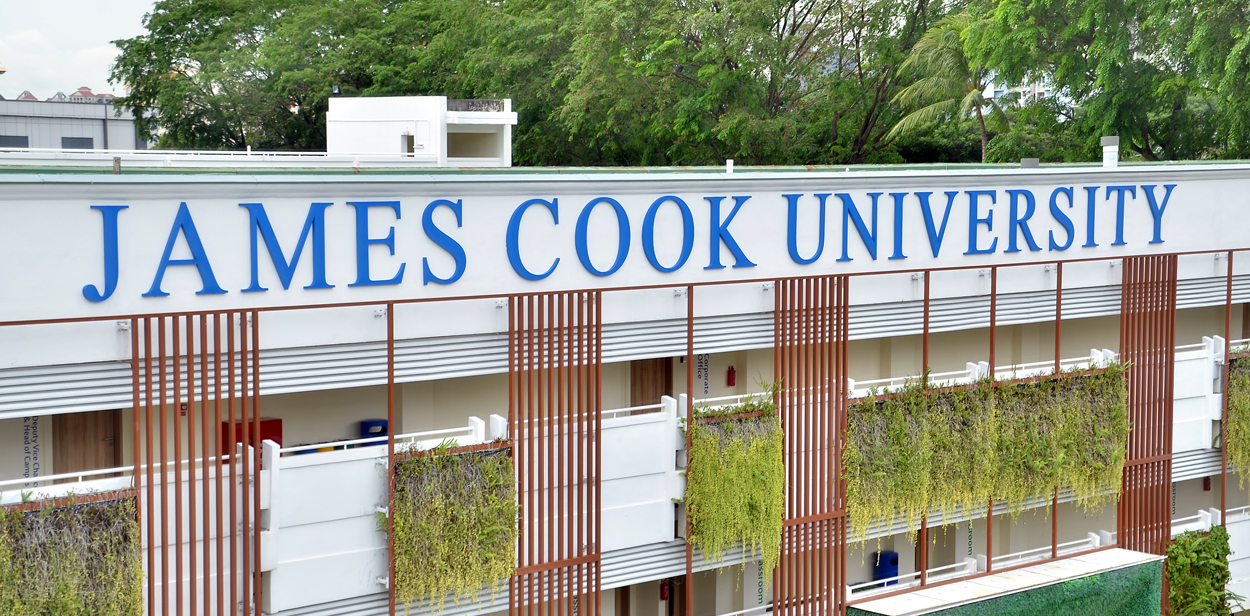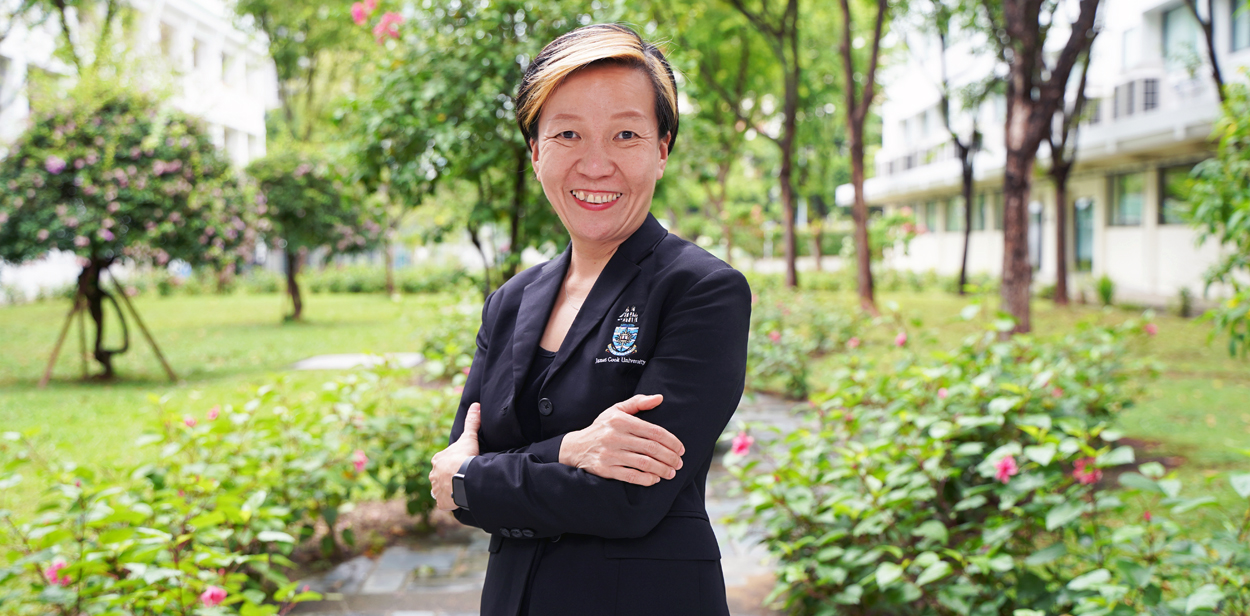Media Releases
How can we deliver on our sustainability goals?
Media Releases

Universities play a vital role in supporting the Sustainable Development Goals, as James Cook University in Singapore develops leadership on sustainability and champions the cause.
The climate/ecological emergency is not new. The dry and erratic climates caused by global warming have severe implications for our way of life — including food production, tourism, and more. Amidst these grave and growing concerns, the need for change is more crucial than ever.
As an urgent call for action to achieve a better and more sustainable future, the Sustainable Development Goals (SDGs) were established in 2015 by the United Nations General Assembly. They outline strategies that address global challenges — including poverty, inequality, climate change, environmental degradation, peace and justice — to promote sustainable growth and resilience.
How can universities tackle climate change?
As institutions of learning, universities are at the frontlines of innovation. They provide excellent spaces for multi-disciplinary research, stimulating discussions and inspired ideas — which enable us to discover solutions to the climate crisis.
Furthermore, universities can communicate and collaborate with wider society; by demonstrating the impacts of climate change, people can understand the need for action. By empowering students and staff to better understand how their behaviours can contribute to climate action, universities can shape current and future decision-makers to drive positive change across the various SDGs.
What is James Cook University in Singapore doing?
Sustainability is at the heart of James Cook University (JCU), taking its place among the University’s core values.

The Singapore campus’s Environmental Science courses are a good example of how JCU is developing future leaders of sustainability. Whether it’s the Bachelor of Business and Environmental Science (Majoring in Aquaculture) or the Bachelor of Science (Majoring in Aquaculture Science and Technology), JCU recognises that aquaculture is an important puzzle piece to our sustainable future. Aquaculture is the farming of aquatic organisms, such as barramundi and tilapia, and boasts high productivity and sustainability. After all, fish have a rapid growth rate yet require fewer calories compared to land animals, allowing fish farmers to deliver massive yields that can feed our enormous population — contributing to the SDG “Zero Hunger”.
In addition, the Bachelor of Business and Environmental Science provides students with a greater understanding of climate and environmental concerns such as carbon footprints, sustainable practices, global climate change, and waste management issues. This equips graduates with the knowledge and skills to steer businesses in more environmentally-conscious directions.
Of course, JCU’s commitment to sustainability also extends to its other courses. For example, the psychology subject “The World Around Us: Environmental Psychology” examines how the natural environment and our built environments shape us as individuals, including (but not limited to) how physical environmental factors such as temperature and pollution affect human behaviour. Meanwhile, the Bachelor of Economics offers subjects focused on sustainability — such as “Economics and Sustainable Resource Management” and “Introduction to Environmental Economics” — which explore how economic concepts can be used to understand environmental issues and develop solutions to environmental challenges.
Similarly, the multi-disciplinary research undertaken by JCU in Singapore is committed to addressing critical challenges facing societies and the environment in the Tropics, worldwide. The Tropical Futures Institute promotes JCU’s research capability and strength across the areas of science (particularly sustainable production of aquaculture species), health and social sciences. Moreover, the various research clusters at JCU in Singapore — such as the Sustainability Research Cluster and the Ethics, Organisations and Society (EOS) Research Cluster — showcase the University’s diverse approaches towards evaluating and researching the topic of sustainability.
Taking the lead on sustainability

On top of the education and research that the University provides, JCU is leading by example through its campus operations. This includes efforts by the Singapore campus to reduce single-use plastics, implementing photocell-controlled light installations (that turn off when extra light is unnecessary) to conserve energy, the use of an eco-shredder that recycles small branches and leaves into compost, and more.
JCU in Singapore also collaborates with partners to contribute towards sustainability goals. A recent partnership with Ocean Purpose Project aims to provide a strong research foundation in creating innovative products from seaweed, and to deepen the community’s understanding of ocean conservation and prevention of ocean pollution. Among other initiatives, the University also supported the launch of the Aquaculture Innovation Centre — which reinforces Singapore’s growing aquaculture sector with research and development, and co-innovation partnerships — and collaborates with research partners on projects in aquaculture genetics and nutrition.
In collaboration with Singapore National Employers Federation (SNEF), James Cook Academy (established by JCU in Singapore) is looking to advance Singapore’s national agenda on sustainable development through short courses that support workforces in understanding and adapting to the Green Economy. These short courses will support the Singapore Green Plan 2030 and are targeted for launch in October 2022.
Working together to create change
In April 2022, the Singapore campus of JCU established the Sustainability Working Group to advance the University’s Sustainability Initiative. The group comprises representatives across various academic, research and professional units, and is responsible for the development and implementation of sustainability activities across the University. The Sustainability Working Group will also work closely with other parts of the University’s Australian campuses to align its aims and goals, and contribute to the SDGs.

Professor May Tan-Mullins, Dean International at JCU in Singapore, leads the Sustainability Working Group as the Campus’s Chief Sustainability Officer. She says, “Taking on climate and environmental concerns can be challenging, but — now more than ever — the world needs universities to take action and inspire positive change that contributes to greater sustainability. Current and future generations depend on us to solve this global problem, as we work together to combat pressing sustainability challenges. I hope that JCU’s strong commitment to sustainability can help create a more inclusive, sustainable and better future for all.”
Professor Tan-Mullins’s research expertise — which includes political ecology, environmental and energy justice, and building comprehensive resilience for climate change in the Tropics — has made her an authority on sustainability. Recently, she was invited to the United Nations’ 2nd Global Goals Forum, taking place on 13 October 2022, to speak on sustainability and China’s Belt and Road Initiative.
As a player on the international stage, JCU hopes to do even more to develop future leaders of sustainability while informing actions that ensure a positive future for us and our planet.
Find out more about the Singapore campus of James Cook University.
Discover further information on areas of research and research strength at James Cook University in Singapore.
Contacts
Media: Mr Edwin Teo [email protected]